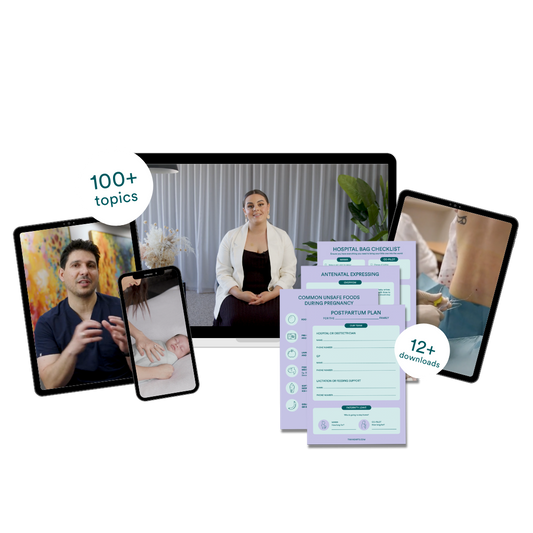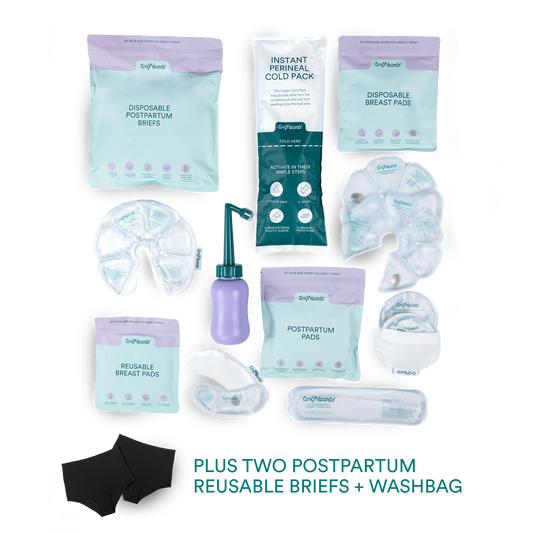Our son Freddie fell ill at just three weeks of age. It was a Saturday night, and we noticed he was a little sleepier than usual. He was showing so signs of anything so we thought not much of it. He woke the next morning extremely upset, restless, super irritated. Throughout the morning and early afternoon, he became very lethargic. I noticed he was starting to burn up, so I took his temperature, it read 39.
I looked at my husband and said we need to take him to the hospital now. Within 15 minutes, we were there when the triage nurse took his temp; it was 39.9 and rising fast. We were taken straight to resus. We were met by four nurses and two doctors who took him out of my arms straight away. Within an hour, he had his blood cultures taken, an IV taken and a lumbar puncture as they were predicting meningitis.

We never expected our tiny little baby to be poked and prodded by multiple doctors. We sat through everything even though it wasn't nice; there was no way we were leaving our baby; he needed us more than ever. After what felt like a lifetime our amazing paediatric doctor came back with some results, we were so happy to be told there was no fluid on his spine and meningitis had been ruled out, although she didn't come bearing all great news. She had come to tell us our newborn baby was septic and extremely sick.
They had started him on five different antibiotics; in hope, one of them would target the right infection and begin to kill it off. He was monitored super closely non stop. We were finally transferred out of emergency to our own room. I didn't want to rest myself. I sat holding him for hours and hours just in case he took a turn for the worst. He would have his cultures taken every day for the next week to see if the antibiotics were working. After 48 hours, they had finally found an antibiotic that was working, and it was due to a staph infection. They just weren't sure how it had got in.

It was roughly 3 am when I had a nurse come to do his ob's she was listening to his heart when she asked me did I know he had a murmur. I replied, no. By 9 am the next morning, we had a heart specialist in scanning his heart as they were worried the infection was targeting his heart which was the worst-case scenario and meant bad news. After getting a heart surgeon down from Royal Melbourne, they found a mass but weren't 100% sure if it was the infection. After further investigation, we found out it wasn't the infection, and our bubba had an extra special heart displaying a partial AVSD. Something we would keep a close eye on at a later stage. On day three, our baby Freddie had a drip in both arms and was about to go in to get a midline inserting in his leg into a main artery.
I was under the understanding I would be able to be in there and hold his hand as it was a procedure that took an hour. After taking him into the room, I was told I would have to leave. This was when I broke as a mother. I cried the entire hour and a half he was taken from me. I was so upset at the thought of him being awake and scared. We were super lucky, and the midline was inserted perfectly, and it meant they wouldn't have to put a new IV in every couple of days regularly and it meant we could use the program hospital to home.

After Freddie's obs we're improving steadily over the days to come, it meant on day eight we were allowed to go home with a nurse to visit our home each day to change his antibiotics and check the drip in his leg. It was nice to be home but extremely stressful to know help wasn't just the press of a button away. After 14 days of antibiotics, our little boy was on the mend and improving each day significantly. We were the luckiest parents in the world, how quickly we could've lost our newborn baby.

Unfortunately, his immune system took a beating for the next 12 months with monthly stays in the hospital. He also is an extremely restless sleeper and cries during his sleep ALOT - I believe the sepsis has really effected his poor little developing body more than we could've ever thought. I'm so glad I can share his story and the importance and severity a temperate can cause.









